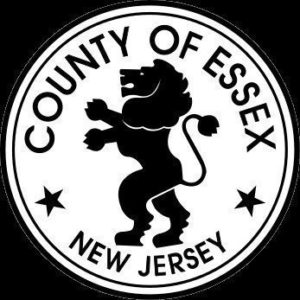I. Code of Conduct
The Cedar Grove Public Library has the following rules in place to protect the right of library patrons to enjoy a safe environment within which they may use and enjoy library materials and services. The United States Court of Appeals decision (Kreimer vs. Bureau of Police for the Town of Morristown, 1992) found that a library is a “limited public forum” created for the specific purpose of providing public access to materials. Additionally, the library can establish rules of behavior to ensure that the library is used for the purposes for which it is intended.
The following list of activities are specifically prohibited :
- Violating any federal, state, county, or town ordinance. Suspected illegal activity will be reported to the police immediately.
- Disruptive, unsafe, or threatening behavior affecting a library patron or staff use of the library.
- Eating or distributing food within the library except when part of a program. Using or bringing in alcohol or illegal substances is prohibited.
- Maintaining bodily hygiene that is so offensive as to constitute a nuisance to other persons in the library. Performing personal hygiene or washing clothes in restrooms is prohibited. Shoes and shirts are required.
- Bringing personal articles into the library that do not fit comfortably under a desk (except for items needed for library research and necessary human conveyances such as wheelchairs or strollers).
- Bringing non-service animals inside the library.
- Children under the age of 10 entering the building alone. They must be accompanied and visually monitored by a parent or guardian.
- Patrons may not campaign in the library.
- Patrons shall promptly leave the building at closing time or in an emergency.
II. Safe Child Policy
The Cedar Grove Public Library welcomes children to its facilities and services. However, the responsibility for the care, safety and behavior of children using the library rests with the parent/guardian or caregiver. Library staff does not act in loco parentis (in place of parents).
Children up to the age of 10 must have a parent or guardian within sight and conversation distance at all times.
Children, like all library patrons, are expected to behave appropriately. A disruptive child will be asked to leave the premises if proper behavior is not maintained. Children participating in library programs are not considered to be supervised by library staff. Parents and guardians, not library staff, are responsible for the behavior and supervision of their children.
Children must know how to reach an adult in case of an emergency, and both child and adult should be aware of library hours. The library does not offer a public telephone. If a child is left unattended at closing time, the staff will make every effort to contact the parent or caregiver. If a child is not picked up within ten minutes of closing, law enforcement officials will be notified to escort the child from the library.
Parents and caregivers are advised that libraries are public places. No public place, including the library, can guarantee the safety of children. A child could be approached by a stranger, become ill, wander outside, or become lost or injured. Library staff will not physically prevent a child from leaving the library, assume responsibility for a child, accompany or transport an unrelated child off library premises. Proper supervision also helps to prevent accidents and injuries. The library is not be responsible for any consequences of caregivers forfeiting their responsibilities. Library staff may refer to appropriate authorities those children who are left unattended in the library
Your compliance with this policy will insure that the Library remains an inviting, safe place for all patrons.
III. Display Policy
Overview
The Cedar Grove Public Library strives to foster the love of reading, life-long learning, and creativity. It achieves this with its collections, programming, and by, in part, by providing a variety of displays.
Choosing topics and materials
The final responsibility for the display of library materials lies with the Library Director, but day-to-day responsibility is shared by professional and paraprofessional employees. Library staff uses the following criteria when planning display topics, materials, and accompanying resources:
- Community needs and interest
- Availability of display space
- Historical, cultural, or educational significance
- Connection to other community or national programs, exhibitions, or events
- Relation to library collections, resources, exhibits, and programs
- Physical proximity to other displays or collections.
-
- Children’s displays are restricted to the children’s room, the art gallery area and adjacent to the circulation desk. Adult displays are restricted to the end caps of shelves containing adult materials, adjacent to the adult computers, adult stacks and will not extend closer to the entrance than parallel to the where the adult collection is housed. Children’s and adult displays will not be place in close proximity to each other. YA displays will be in the isle that houses the YA collection. The display of work from outside artists are limited to the gallery area and between the adult collection and the DVDs in the display case.
The Library strives to include a wide range of opinions and viewpoints in their displays appealing to a range of ages, interests, and information needs. Library displays should not exclude topics, books, media, and other resources solely because they may be considered controversial. The Library reserves the right of citizens to obtain information on controversial issues. It provides patrons with reliable sources of information so that all sides of an issue can be explored allowing patrons to make informed decisions.
To this end, the Library may put up displays which could be considered offensive to some as long as they adhere to the Display Policy. Parents and legal guardians have the right and responsibility to restrict the access of their children to library resources. The display of materials is not inhibited by the possibility that materials on display may be seen by or come into the possession of children and young adults.
Procedures for the Questioning of Library Displays
Only Cedar Grove residents can file a complaint and they must be submitted by an individual, not by groups or on behalf of a group. If questions or concerns regarding a library display arise, the following procedures should be followed:
- The patron is directed to an appropriate staff member.
- This staff member makes every attempt to satisfy the patron’s concern by discussing display policies.
- After the interview, the staff member submits to the Library Director a written statement that includes the date, contact information for the individual, the circumstances, and the status of the issue
- A patron who is unsatisfied after talking to a staff member is referred to the director or, if not available, their designated alternate. If the issue reaches this point it is considered a formal complaint.
- During the meeting with the patron, a Request for Reconsideration of Library Material form will be filled out.
- The Director appoints a three-member committee of staff members to review the display and prepare a written recommendation within ten (10) working days.
- The Director makes a decision based on the committee’s recommendation and notifies the patron, in writing, within five (5) working days of receiving the recommendation.
- If the patron is still not satisfied they can bring their complaint to the Library Board for consideration at the next regularly scheduled meeting.
- The Library Board will review the complaint and communicate its recommendation to the Library Director.
- The Library Director then reviews their original decision in the context of the Board’s recommendation and will send their decision to the patron in writing, within five (5) working days of receiving the recommendation.
- The Library Director’s decision on the complaint is final and without further appeal.
IV. Paid Library Card
Adults who do not own property or work in town or have access through other means, such as Rebl or
reciprocal borrowing, can become members of the Cedar Grove Library by purchasing a paid card. Paid
cards are able to use the resources provided by the Cedar Grove Library but not those provided by
PalsPlus. The cost of a card is equal to what the average homeowner pays in taxes to the library
annually. The current price for a paid card is $172. The cost of a paid card will be examined annually and
adjusted to keep pace with taxpayer funding. The card is valid during the current calendar year (Jan-Dec)
regardless and the price will be prorated based on the month the card is purchased.














